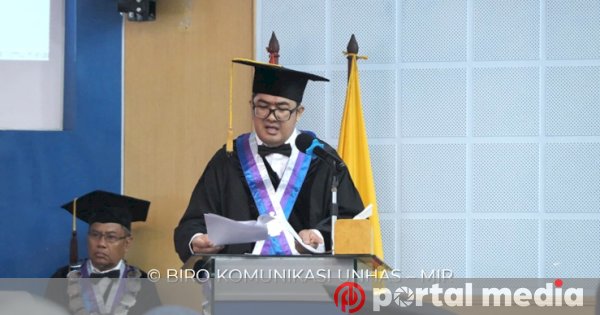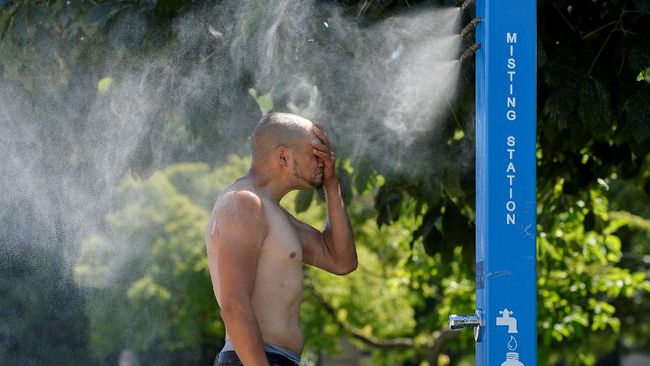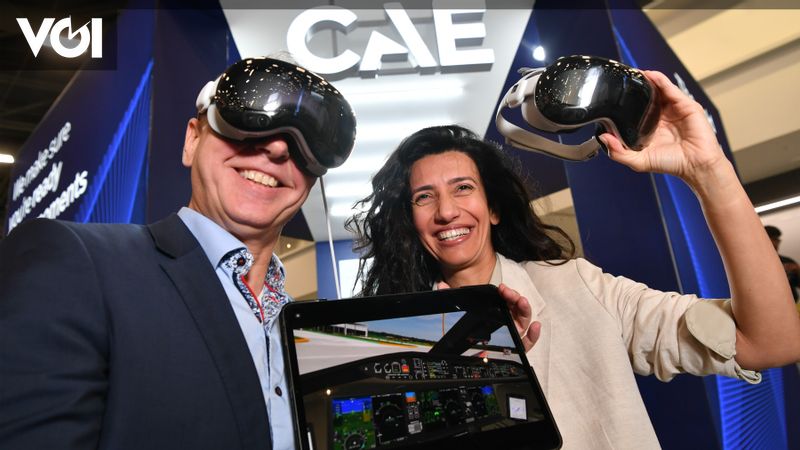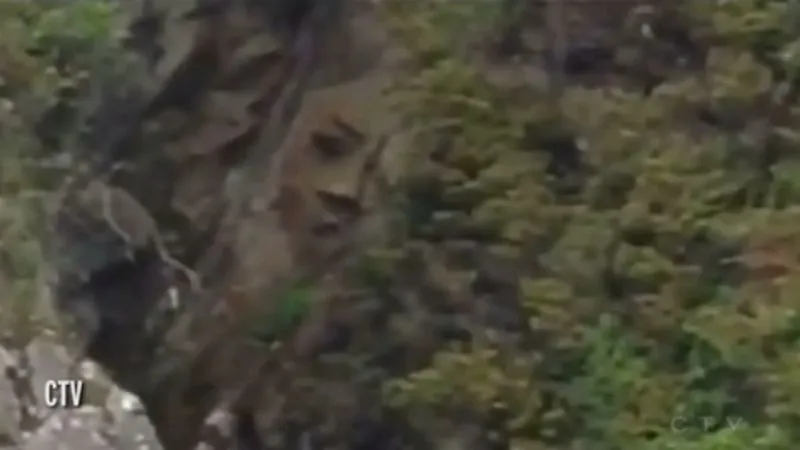The inauguration process took place during a restricted plenary meeting of the Academic Senate as part of the acceptance ceremony for the professorship, which took place from 09:00 WITA in the Academic Senate Hall of the ‘Unhas, 2nd Floor of the Rectorate Building, Tamalanrea Campus, Makassar
PORTALMEDIA.ID, MAKASSAR – Dean of the Faculty of Marine and Fisheries Sciences (FIKP) Hasanuddin University Prof. Safruddin, S.Pi., MP, Ph.D was inaugurated as the 488th Unhas Professor in the field of Fisheries Oceanography, FIKP.
The inauguration process took place during a restricted plenary meeting of the Academic Senate as part of the acceptance ceremony for the professorship, which took place from 09:00 WITA in the Academic Senate Hall of the ‘Unhas, 2nd floor of the Rectorate Building, Tamalanrea Campus, Makassar, and broadcast live via the Unhas Academic Senate YouTube channel, Tuesday (10/24).
Also present was the Chancellor of Unhas, Prof. Dr. Ir. Jamaluddin Jompa, M.Sc., President, Secretary and members of the Board of Trustees, Academic Senate, Faculty Council, guests, as well as the extended family of appointed professors.
Also read: KPPU President inaugurated as Professor of Legal Studies at Unisda
Teacher. Safruddin delivered his inaugural speech titled “The Influence of Fisheries Oceanography on the Establishment of Pelagic Fishing Zones at WPPNRI 713 Based on Remote Sensing Technology to Support the Achievement of SDGs”.
In the introduction it is explained that based on published data (Dahuri, 2019), Indonesia is the largest archipelagic country consisting of more than 17,500 islands with the second longest coastline in the world after Canada, which is more than 95,181 km with a water surface. approximately 70% of the total territory of the Republic of Indonesia.
Based on the Decree of the Minister of Maritime Affairs and Fisheries (Kepmen KP) No. 19 Tanun 2022, the capture fishing potential in Indonesian waters can reach 12.01 million tonnes/year with an estimated number of catches authorized (JTB) to maintain the sustainability of fisheries resources, i.e. 9.61 million tonnes per year.
Also read: PPKS Working Group hands over 11 decrees for PKS Ambassadors within the Unhas Campus for the period 2023-2024
However, the level of utilization of this potential is still around 6.60 million tonnes (2017), so it can be further increased within the limit of sustainability of fishery resources of 3.01 million tonnes per year. year.
“This shows the need for policies and strategies, not only to optimize the use of fisheries resources, but also effective and efficient policies and strategies to reach all Indonesian State Fisheries Management Areas (WPPNRI) that are sustainably exploitable (can be exploited sustainably) and competitive and productive,” explained the professor. Safruddin.
It was further explained that the Indonesian government established eleven WPPNRIs to optimize the management of marine fishery resources in Indonesian waters. The division of these areas is based on differences in the oceanographic characteristics of fisheries, the diversity of ecosystems, social, economic and cultural conditions related to the availability and use of fisheries resources.
Also read: BUMN-Unhas-Jasa Raharja Collaboration: Educating Students on Road Safety Knowledge
The determination of eleven WPPNRIs also constitutes a concrete step towards achieving the Sustainable Development Goals (SDGs). One of the concerns of point 14 of the SDGs in terms of optimizing the use of fisheries resources is the implementation of environmentally friendly fishing, supported by the provision of oceanographic data and information on the fishing.
“In the current era of digitalization, the remote sensing approach through analysis of oceanographic satellite image data of fisheries has been used to determine fishing grounds (potential fishing areas), which allows stakeholders in the fishing sector to more easily carry out fishing operations in an effective and efficient manner”, explained Prof. Safruddin.
WPPNRI 713 covers the areas of South Makassar, Flores Sea, Bali Sea and Bone Bay. It requires special attention because of its potential and promising contribution to national fisheries production. This area provides habitat and passage for economically important fish, particularly large pelagic fish. Accurate fish stocks are essential and are essential for managing pelagic fisheries resources to achieve the SDGs.
Check out more news and articles on Google News

“Travel nerd. Social media evangelist. Zombie junkie. Total creator. Avid webaholic. Friend of animals everywhere. Future teen idol.”


:strip_icc():format(jpeg)/kly-media-production/medias/3387188/original/007486800_1614303448-banner__1_.jpg)



